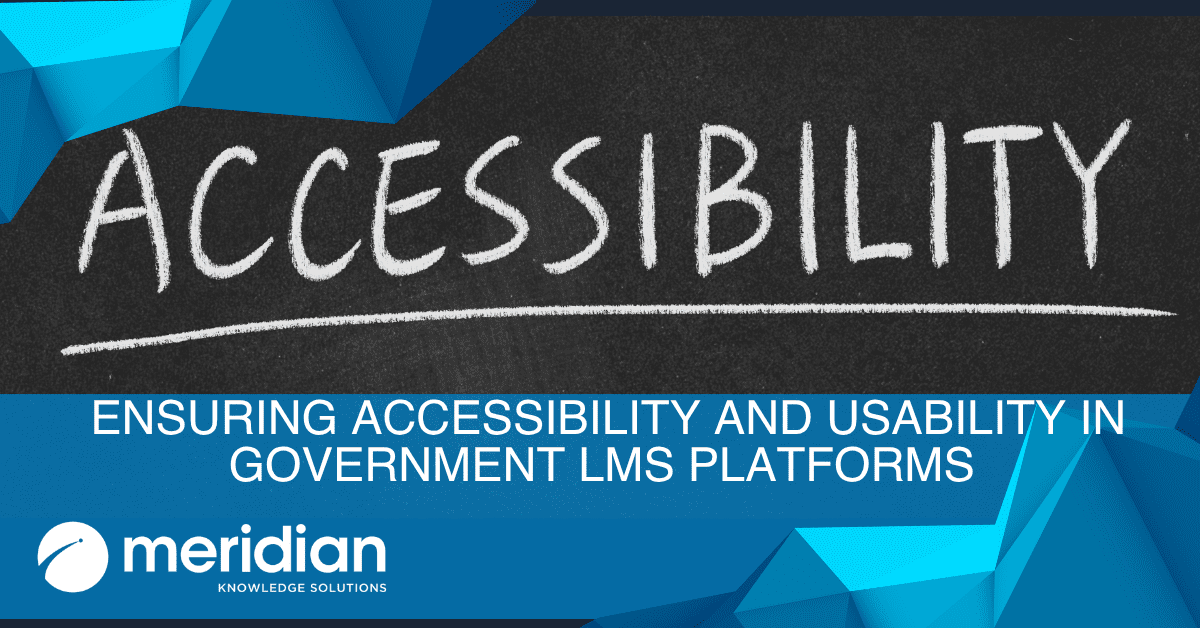
In today’s interconnected digital landscape, the ability of systems to communicate and operate harmoniously is not just an advantage; it’s a necessity. With their complex IT infrastructures, government organizations require solutions that can seamlessly integrate without disrupting existing workflows. Meridian Knowledge Solutions recognizes this critical need and has designed its Learning Management System (LMS) to effortlessly integrate with a wide range of government IT infrastructures, including HR systems, authentication protocols, and other essential software tools. This integration capability is a key factor in how Meridian LMS enhances government efficiency and delivers a seamless user experience.
Human Resources (HR) systems are at the heart of government organizations, managing everything from employee data to organizational structures and processes. Integrating Meridian LMS with existing HR systems allows for real-time synchronization of employee records, job roles, and organizational changes. As employees join the organization, change positions, or depart, their LMS records automatically update to reflect these changes, ensuring that their training paths align with their current roles and responsibilities.
This level of integration streamlines the administrative process, reducing the manual effort required to maintain accurate, up-to-date training records. It also ensures that employees have access to the training they need when they need it, based on their job role and career progression, thereby enhancing the overall effectiveness of training programs.
Security is paramount in the government sector, and authentication protocols are crucial in safeguarding digital assets. Meridian LMS integrates with existing government authentication protocols, such as Single Sign-On (SSO) systems, to provide secure, seamless access to the LMS. This integration enables users to access Meridian LMS with the same credentials they use for other government systems, simplifying the login process and reinforcing security.
By leveraging existing authentication frameworks, Meridian LMS ensures secure, user-friendly access to training materials, enhancing compliance with security policies while minimizing barriers to learning.
Government organizations utilize various software tools for a range of functions, including project management, collaboration, data analysis, and reporting. Meridian LMS’s API-driven architecture enables flexible integration with these tools, enabling data exchange and extending the capabilities of both the LMS and the integrated software.
For example, training completion data from Meridian LMS can feed into performance management tools, linking training outcomes with employee evaluations. Similarly, the LMS can integrate with collaboration platforms to facilitate social learning and peer interaction, enriching the learning experience and fostering a culture of continuous improvement.
Meridian LMS’s integration capabilities enhance the learner experience and streamline administrative processes. Automated data exchanges between the LMS and other systems reduce the need for manual data entry, minimizing errors and freeing up valuable administrative time. Reporting functions can draw on data from multiple systems to provide comprehensive insights into training effectiveness, compliance rates, and other key metrics.
Meridian LMS enhances efficiency at multiple levels by facilitating seamless integration with existing government IT infrastructures. For learners, it offers frictionless, secure access to training resources aligned with their career paths. For administrators, it simplifies the management of training programs, reduces manual workload, and provides deeper insights into training outcomes. Overall, Meridian LMS’s integration capabilities ensure that government organizations can fully leverage their existing IT investments, enhancing the impact of their training programs and advancing their mission-critical objectives.